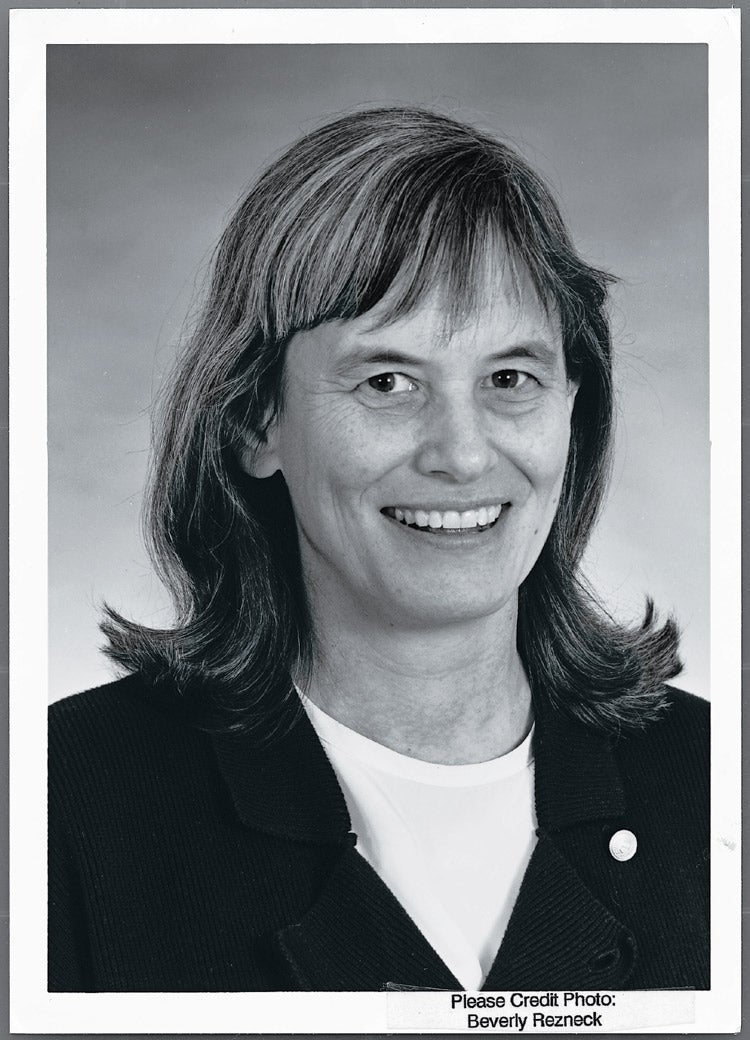Years before Enron’s collapse spotlighted the vulnerability of employee retirement savings, Karen Ferguson ’65 was immersed in what she half-jokingly refers to as the “arcane” area of pension law. The dusty associations that description conjures disappear quickly, however, when Ferguson reveals her passion for the field and its complexities.
“It’s one of the great secret scandals of our country that people don’t realize they can work a lifetime and still not have enough money for retirement,” she said. “We have essentially two classes of retirees: those who do really well and those who live almost entirely on Social Security, which pays less on average than the minimum wage. Those people aren’t making it.”
Ferguson was first introduced to pension law in the early 1970s, when she was a litigator for Ralph Nader’s (’58) Public Interest Research Group. “Ralph dropped a series of newspaper articles on my desk about pension abuses, and I was immediately drawn in–so many people had been hurt in so many different ways,” she recalled. Several years later, when Ferguson was working as a consultant for the United Mine Workers of America Health and Retirement Funds, she alerted Nader to the efforts of industry groups seeking to undercut advances made in the 1974 Employee Retirement Income Security Act. Nader responded with an enticing offer: a $10,000, no-strings-attached seed fund to start her own non-profit organization. In 1976, Ferguson founded the Washington, D.C.-based Pension Rights Center, where she now serves as director.
The organization serves simultaneously as advocate, educator, and legal expert with the primary goal of protecting and expanding the pension rights of workers, retirees, and their families. “People who have fallen through the cracks come to us,” said Ferguson. “We’ve been the initiating force behind five federal laws that have made it possible for millions of retirees, widows, and divorced women to receive pensions.”
She also lauds the organization’s role in raising awareness of pension rights and going to court to protect them when necessary. “The rewards are immense,” said Ferguson. “We deal directly with individuals and are often able to help them in one way or another–the work is creative, intellectually challenging, and personally satisfying.”
The recent dwindling of Enron employees’ retirement savings created a newfound sense of urgency around issues that have driven the center’s work from the start. “There’s been a dramatic shift in the last 20 years from insured, company-funded pensions to a do-it-yourself culture built around 401(k) plans,” said Ferguson. “Enron was a wake-up call. Now people are really questioning what kind of retirement system we have in the United States.”
That scrutiny translated into even longer days–and nights–for Ferguson and the center’s six staffers, as they fielded nonstop calls from the media, Capitol Hill, and a panicked public that suddenly viewed the security of its retirement savings in a new light. In addition to maintaining its full roster of activities, the center is organizing former Enron employees to support legislation that would limit the concentration of employer stock in 401(k) plans and create an ombudsman office on retirement plan issues within the federal government.
Whatever the legislative outcome, Ferguson maintains an optimistic yet clear-eyed outlook that is characteristic of her ongoing commitment to public service. “It really is a David-and-Goliath sort of situation, with the employees against everyone else,” she said. “But what is happening now will lay the groundwork for future pension rights reform. It’s going to be an uphill battle, but we’re going to give it our all.”
–Julia Hanna
